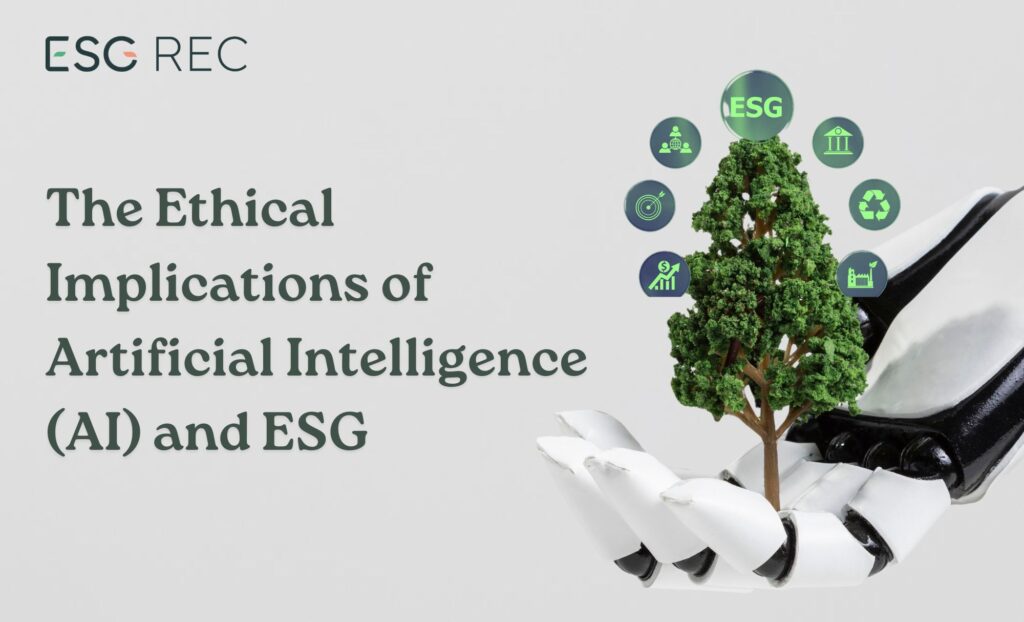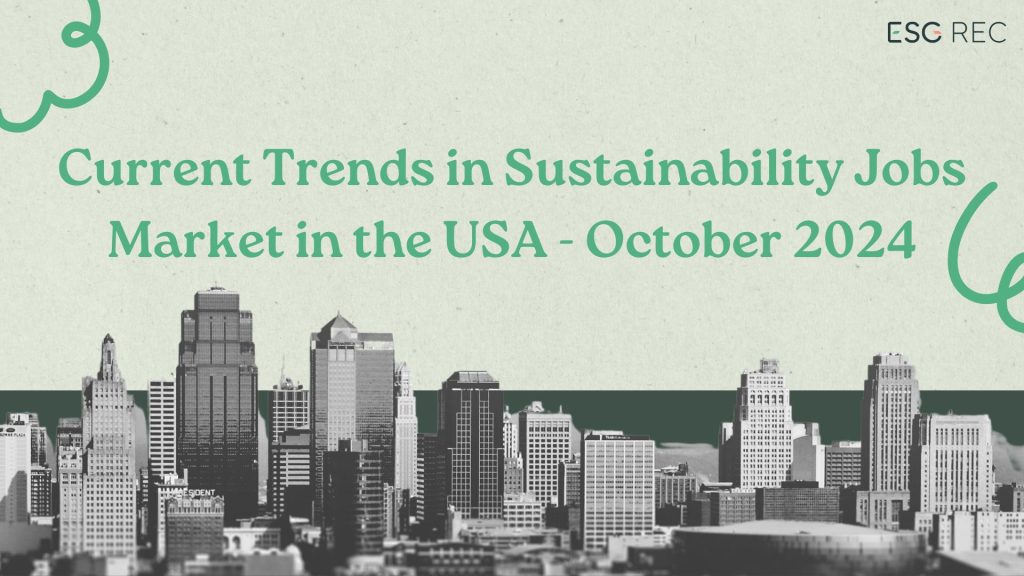
Artificial Intelligence (AI) is no longer a futuristic concept—it’s here, transforming the way we live, work, and make decisions. From automating tasks to predicting market trends, AI is revolutionizing industries at lightning speed. But as AI continues to evolve, so do the ethical questions surrounding its impact, particularly in the realm of Environmental, Social, and Governance (ESG) concerns. Can AI be a force for good while remaining accountable and sustainable? Let’s explore.
AI and Environmental Responsibility: Innovation or Energy Drain?
AI is a double-edged sword when it comes to sustainability. On one hand, it’s driving eco-friendly solutions like optimizing energy use, predicting climate risks, and improving waste management. On the other, AI’s power-hungry data centers are contributing significantly to global energy consumption.
AI’s Role in Climate Change Mitigation
Picture this: AI-powered climate models accurately predict hurricanes, allowing governments to prepare in advance and save lives. In agriculture, AI helps farmers optimize irrigation, reducing water waste and increasing food production. By integrating AI into environmental strategies, we can make smarter, more sustainable decisions—if we do it right.
The Dark Side: AI’s Energy Appetite
Training complex AI models requires staggering amounts of data processing, which translates to high electricity usage. The carbon footprint of large-scale AI operations is undeniable. The solution? Green AI—developing more energy-efficient models, using renewable energy for data centers, and refining algorithms to reduce computational waste.
AI’s Social Impact: Progress or Prejudice?
AI is reshaping the workforce, automating jobs, and raising concerns about employment stability. But the bigger issue? Bias in AI decision-making, which can reinforce discrimination in hiring, finance, and even law enforcement.
The Job Market Shake-Up: Who’s at Risk?
Robots aren’t just taking over factory lines—they’re handling administrative tasks, customer service, and even journalism. While AI eliminates repetitive jobs, it also creates opportunities in AI development, cybersecurity, and data science. The challenge? Ensuring workers aren’t left behind. Companies and governments must invest in upskilling programs to prepare people for an AI-driven economy.
Algorithmic Bias: When AI Gets It Wrong
AI is only as good as the data it learns from. If that data is biased, AI decision-making will be too. Take hiring algorithms, for example—some have been found to favor male candidates over equally qualified women. Financial AI models have denied loans based on ZIP codes, reinforcing systemic inequalities. To build ethical AI, companies must prioritize fairness, transparency, and continuous audits of AI decision-making processes.
Governance and Ethical AI: Who’s Keeping AI in Check?
As AI becomes more powerful, so does the need for regulations to prevent misuse. Companies must not only comply with legal standards but also embrace ethical AI practices that align with ESG principles.
Regulatory Oversight: The Growing Need for AI Laws
Governments worldwide are stepping up AI regulations. The European Union’s AI Act is a game-changer, classifying AI systems based on risk and enforcing strict compliance measures for high-risk applications. Businesses need to stay ahead of these regulations or risk penalties and reputational damage.
Transparency and Accountability: Breaking the “Black Box”
One of the biggest criticisms of AI is its lack of transparency. Many AI systems operate as “black boxes,” making decisions without clear explanations. This lack of accountability can erode trust among consumers and stakeholders. The solution? Explainable AI—developing models that provide human-readable insights into how decisions are made.
Ethical AI in Action on Real-World Examples
AI in Healthcare: A Lifesaver with Ethical Dilemmas
AI-driven diagnostics are improving accuracy in detecting diseases like cancer. However, biased training data can lead to misdiagnoses, particularly in underrepresented communities. The fix? Diverse data sets, continuous monitoring, and human oversight in AI-assisted medical decisions.
AI in Finance: Smarter Loans or Built-In Discrimination?
AI is transforming the finance industry, from fraud detection to credit scoring. But here’s the catch—biased AI models can unfairly deny loans to marginalized groups. Financial institutions must audit AI systems regularly, implement fairness measures, and ensure responsible lending practices.
The Future of Ethical AI and ESG
What’s next for AI and ESG? The future depends on how we balance innovation with responsibility. Companies must integrate ethics into AI development from the start, ensuring that AI aligns with sustainability goals, social fairness, and transparent governance.
Final Thoughts: The AI Balancing Act
AI holds immense potential to drive ESG goals forward—but only if we get it right. By implementing responsible AI strategies, companies can lead with integrity, drive innovation, and build a more sustainable, fair, and transparent future. Ethical AI isn’t just a corporate buzzword; it’s a necessity for shaping a better world.
Looking to stay ahead of ESG and AI trends? Visit www.esgrec.com for insights, updates, and expert guidance on navigating the future of responsible AI.

